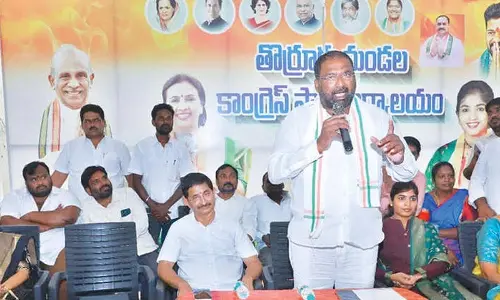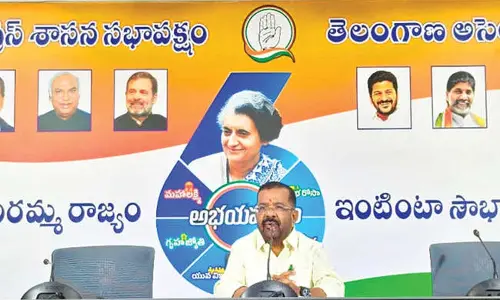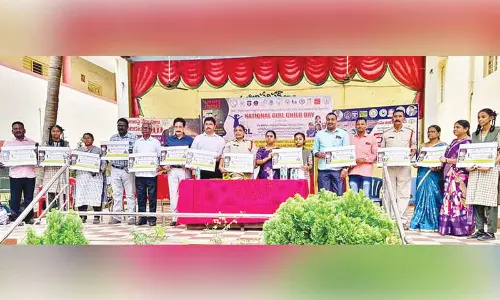Govt in a rush to release GM Mustard

The attempts made by Indian institutions to interpret Bt gene in local cotton cultures were negated by Monsanto in the name of IPR. But China released its own varieties.
The attempts made by Indian institutions to interpret Bt gene in local cotton cultures were negated by Monsanto in the name of IPR. But China released its own varieties. Though, China allowed Monsanto-owned cottons with Bt gene, its agency released many more varieties owned by CAAS were released. Monopoly resulted in steep costs for farmers in India. Evaluation of herbicide and insect resistant multi-gene impregnated mustard hybrids has to be carried out thoroughly before their release
India faces yet another controversy over genetically modified (GM) or transgenic crops, following decisions taken by GEAC of the Ministry of Environment and Forests for release of GM mustard. The good and bad of these new mustard hybrids are only half-known, since these are confined to laboratories or test pilots.
Although several scientists and policy makers argue that GM crops are essential to address various issues in contemporary farming, many evidences point to negative side of foreign gene insertion techniques for ad hoc gains. Neither the main ownership claimers nor the genetic appraisal (not approval) committee bother to take care of the Supreme Court verdict and parliamentary committee recommendations on the large-scale release of those hybrids. Why this unwanted situation?
Certain transnational investors in agro-chemicals, hiding the fact about the invention of new recombinant-DNA technology by US Department of Agriculture and Delta & Pine company, manipulated to own it. In the guise of the Trade Related Intellectual Property Rights (TRIPS), these companies have diluted Cartagena Agreement and Plant Variety Protection Acts. This is evidenced with the insertion of foreign genes in several of the crop varieties that are maintained by indigenous crop growers and public institutes.
Neo-liberal policies adopted by several countries started adjusting to the new transformation of ownership of crop seeds by the private sector.
The entry of transgenic crops started with Bacillus thuringiensis gene inserted cotton crop in India during 2002 even without a legal frame work with reference to monopoly trade and foreign direct investments in primary sector.
Mahyco-Monsanto company (MMB) monopolised Bt Cotton seed trade in India for the past 16 years. The domestic companies that got Bt technology licence from MMB were required to pay one-time licence fee as well as a rotational royalty fee for availing their gene. This led to a large price difference between Bt hybrids and non-Bts.
Before Monopolies and Restrictive Trade Practices Commission (MRTPC) interfered, the seed rate was as high as Rs 1,600 for 450 grams, while it was Rs 45 in China and Rs 108 in US. Farmers’ movement organisations through the Government of AP (2006) made the companies reduce cost to half against the decisions and demands of Association of Biotech Led Enterprises that hired “renowned scientists.” Most of the research in agri-biotechnology is done by a few multinationals that might not develop varieties with desired traits that are popular and suitable for resource-poor farmers.
The attempts made by a few like IIT Kharagpur and CICR, Nagpur, to interpret Bt gene in local cotton cultures were negated by Monsanto in the name of IPR. Meanwhile, China also embarked upon introducing new technology-backed cotton varieties after a 12-year national GM variety development programme. They released Bt cotton variety owned by Chinese Academy of Agricultural Sciences (CAAS). Subsequently China allowed release of Monsanto-owned cottons with Bt gene. In the process many more varieties owned by CAAS were released.
It is interesting to note that the Chinese government has not liberalised FDI in seed sector and has placed restrictions on investing firms like Monsanto. The Chinese government has joint ventures with some of the seed companies. Nonetheless, seeds from these joint ventures account for less than 20 per cent share of market. China’s Plant Variety Protection Act of 1997 permits farmers to reuse and exchange seeds including Bt cotton among farmers.
Naturally, in China most of the Bt cotton events were in open pollinated varieties rather than in hybrids. This facilitated the farmers to reuse their seed and reduce the cost of inputs. Although Monsanto or any major company had technology or patents, they could not dominate the seed sector, as CAAS was equally equipped to remain in competition.
Responsible research and innovation has emerged as an important concept in academic studies on science and technologies and innovations that are intertwined with science policy and funding in many countries. Unfortunately, that is missing or ill-equipped in India, while it is primarily put in practice in several countries.
Responsibility, transparency, interactivity, ethical acceptability, sustainability and social desirability are the key elements for scientific and technology advances in desired direction. These are missing even in evaluating herbicide and insect resistant multi-gene impregnated mustard hybrids. So it is time to relook the policies and amend in the interest of people and environment, as suggested by Swadeshi Jagaran Munch also. (Writer is a retired professor, ANGR Agriculture University, Guntur)
By N Venugopal Rao

















